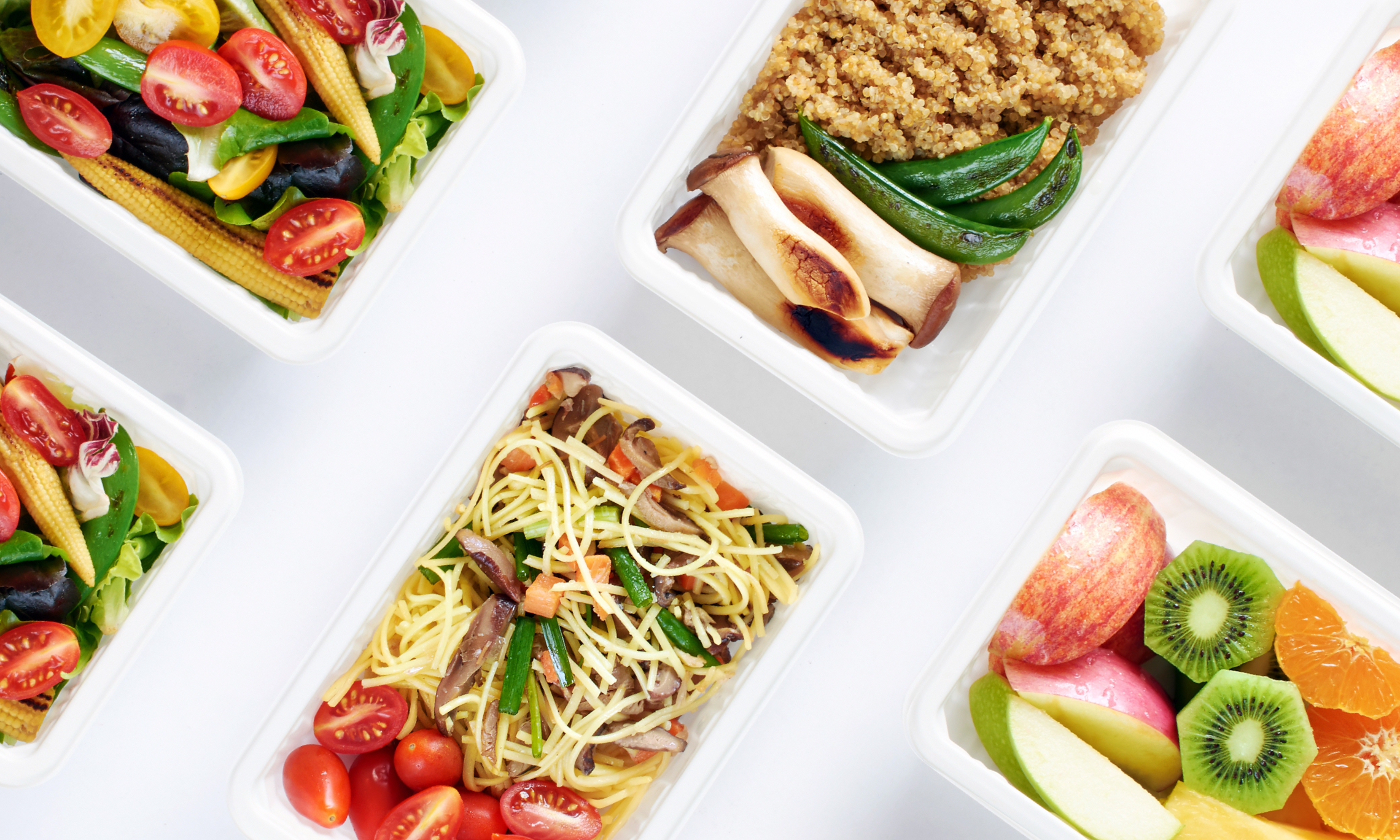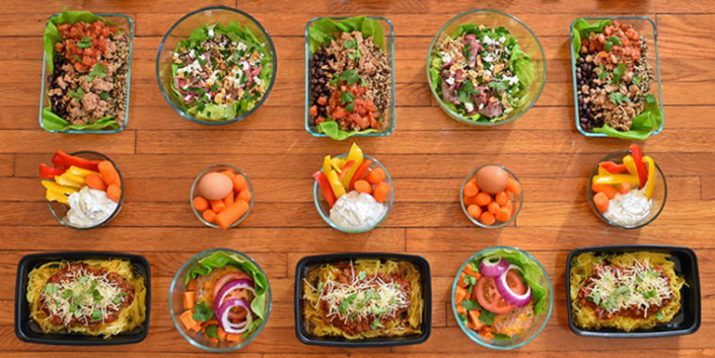:max_bytes(150000):strip_icc()/VWFit-Meal-Plan-Journey-1-Week-Healthy-and-Balance-Meal-Plan-6ee43578918947a4b687922d614f2be3.jpg)
If you’re trying to eat healthier, meal planning is the key. But where do you start? Planning your meals may seem like a daunting task, but with a little bit of effort and guidance, it can become a seamless part of your routine.
One of the best things you can do for your health is to plan your meals. Meal planning helps you stay on track with your nutrition goals, saves you time and money, and can be a lot of fun!
As healthy experts, we want to share our first-hand experience with meal planning and how it has positively impacted our lives.
Here, we’ll guide you through the process of healthy meal planning and share tips and tricks from the experts.
What is Healthy Meal Planning

Healthy eating starts with proper meal planning. If you want to stay on track with your health goals, you need to plan your meals ahead of time. Meal planning is not only important for maintaining a healthy weight, but it can also save you time and money.
At first, meal planning may seem daunting, but it is actually quite simple. All you need is a little bit of planning and preparation. You don’t need to be a nutrition expert or a gourmet chef to create healthy and delicious meals.
Why Meal Planning is Important
Meal planning is the process of deciding ahead of time what you will eat for each meal and snack. It involves creating a menu, making a grocery list, and preparing meals in advance.
Meal planning is the process of organizing and preparing meals ahead of time. It involves creating a menu, shopping for ingredients, and preparing the meals in advance.
There are many reasons why meal planning is important, including:
- Saves time: When you have a plan in place, you don’t have to spend time every day figuring out what to eat.
- Saves money: Meal planning helps you avoid impulse buys and wasted food, which can save you money in the long run.
- Improves health: By planning your meals, you can ensure that you’re getting all the nutrients you need and avoiding unhealthy options.
- Reduces stress: Knowing what you’re going to eat ahead of time can reduce the stress of mealtime.
Meal planning is important because it helps you take control of your health. When you plan your meals, you can choose foods that are nutritious and satisfying. This means you are less likely to reach for unhealthy options when you are hungry or on-the-go.
Additionally, meal planning saves you time and money. By planning your meals in advance, you can shop for ingredients in bulk and use them in multiple meals. This reduces food waste and saves you from spending money on last-minute fast food runs.
Finally, meal planning can be a lot of fun! Experiment with new recipes and flavors, and get creative with your meal prep. You might even discover a new favorite dish or ingredient that you would not have tried otherwise.
How to Start Healthy Meal Planning

If you want to lead a healthy lifestyle, meal planning is a must. Planning your meals ahead of time ensures that you have healthy and nutritious food on hand when hunger strikes, which helps you avoid making poor food choices. But, where do you begin?
We will guide you through the basics of meal planning, from creating a grocery list to preparing meals in advance.
Step 1: Set Your Goals
Before you start planning your meals, you need to figure out what your goals are. Do you want to lose weight, gain muscle, or simply maintain your current weight? Once you have a clear idea of your goals, you can start planning your meals accordingly.
Step 2: Create a Grocery List
Once you have set your goals, the next step is to create a grocery list. This list should include all the foods you need to achieve your goals. Make sure to include plenty of fruits, vegetables, whole grains, and lean proteins.
Step 3: Plan Your Meals
Now that you have your grocery list, it’s time to start planning your meals. You can do this in a number of ways. Some people prefer to plan their meals for the entire week, while others prefer to plan a few days at a time.
Whichever method you choose, make sure to include a variety of foods to keep things interesting.
Step 4: Prep Your Meals in Advance
Meal prepping is a great way to save time and ensure that you always have healthy meals on hand. Set aside some time each week to prepare your meals in advance.
This could mean cooking a big batch of chili or roasting a tray of vegetables. Whatever you do, make sure to store your meals in air-tight containers to keep them fresh.
Step 5: Stay on Track
The key to successful meal planning is to stay on track. Make sure to stick to your grocery list and avoid buying unhealthy foods. Keep track of what you eat each day and make adjustments as needed.
Meal planning doesn’t have to be complicated. By following these simple steps, you can create healthy and nutritious meals that fuel your body and help you reach your goals.
Tips for Healthy Meal Planning
Here are some tips to help you create healthy and delicious meals:
- Focus on whole, nutrient-dense foods. Choose fruits, vegetables, whole grains, lean proteins, and healthy fats.
- Use herbs and spices instead of salt to add flavor to your meals.
- Experiment with new recipes and cuisines. This can help keep your meals interesting and prevent boredom.
- Don’t be afraid to use leftovers. Leftovers can be a great way to save time and reduce food waste.
- Make it fun! Meal planning doesn’t have to be a chore. Get creative and enjoy the process.
Tricks for Healthy Meal Planning
Now that you know why meal planning is important, let’s dive into some tips and tricks from the experts.
- Start with your schedule: Before you plan your meals, take a look at your schedule for the week. Are there days when you’ll be eating out or have less time to cook? Plan for those days accordingly.
- Choose a variety of foods: Eating a variety of foods ensures that you’re getting all the nutrients you need. Aim for a balance of protein, carbohydrates, and healthy fats.
- Prep in advance: Prepping ingredients in advance can save you time when it comes to cooking. You can also prep entire meals and freeze them for later.
- Keep it simple: Don’t feel like you have to make complicated meals every day. Simple meals can be just as nutritious and delicious.
- Shop with a list: Going to the grocery store with a list can help you avoid impulse buys and ensure that you have everything you need for your meals.
- Make extras: When you’re cooking, consider making extra portions to have for lunch the next day or freeze for later.
- Get creative: Meal planning doesn’t have to be boring. Get creative with your meals and try new recipes.
How to Get Started with Meal Planning
Getting started with meal planning is easy. First, set aside some time each week to plan out your meals. This can be as simple as writing down a list of meals and snacks for the week ahead.
Next, make a grocery list based on your meal plan. Be sure to include all the ingredients you will need for your meals and snacks. This will save you time and money at the grocery store.
Once you have your ingredients, set aside some time to prep your meals. This can be done in one big batch, or you can prep as you go throughout the week. By prepping your meals in advance, you can save time and ensure that you always have healthy options on hand.
Healthy Meal Planning Made Easy
Now that you have some tips and tricks for healthy meal planning, let’s put it all together. Here’s an example of what a week of healthy meals could look like:
Monday:
Breakfast – Greek yogurt with berries and granola
Lunch – Salad with chicken, avocado, and balsamic vinaigrette
Dinner – Grilled salmon with roasted vegetables
Tuesday:
Breakfast – Oatmeal with almond butter and banana
Lunch – Turkey and hummus wrap with carrots and celery
Dinner – Turkey chili with cornbread
Wednesday:
Breakfast – Smoothie with spinach, banana, and almond milk
Lunch – Quinoa and vegetable stir-fry
Dinner – Baked chicken with sweet potato and green beans
Thursday:
Breakfast – Scrambled eggs with whole wheat toast and avocado
Lunch – Tuna salad with crackers and cucumber slices
Dinner – Pork tenderloin with roasted carrots and quinoa
Friday:
Breakfast – Yogurt parfait with fruit and granola
Lunch – Chicken Caesar salad
Dinner – Grilled steak with roasted brussels sprouts and sweet potato
Saturday:
Breakfast – Whole wheat pancakes with fruit and Greek yogurt
Lunch – Veggie burger with sweet potato fries
Dinner – Pork tenderloin with roasted carrots and quinoa
Conclusion
Meal planning is an important aspect of a healthy lifestyle. By taking control of your nutrition and planning your meals in advance, you can save time and money, and ensure that you always have healthy options on hand. So, grab a pen and paper, get organized, and start planning your meals today!
In conclusion, meal planning is an essential part of a healthy lifestyle. By planning your meals ahead of time, you can make healthier choices, save time and money, and enjoy delicious and nutritious meals.
With a little bit of planning and preparation, you can become a healthy expert in your own kitchen.

Leave a Reply